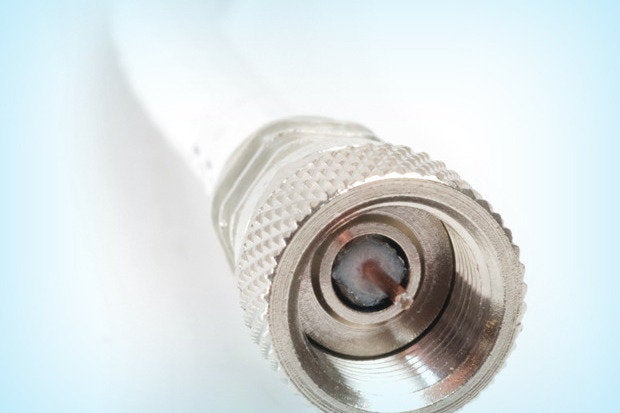Congress is launching yet another attack on Net neutrality by advancing a bill that would strip the FCC of authority to investigate complaints about cable companies.
Net neutrality rules have been under a two-pronged attack ever since they passed last year. On one front, Internet providers are suing the FCC to overturn rules that reclassified broadband as a common carrier service. Meanwhile, their lackeys in Congress have repeatedly tried to pass measures that would defund the agency or prohibit it from enforcing Net neutrality until the lawsuits are settled -- which could be years down the line.
Now H.R. 2666, the "No Rate Regulation of Broadband Internet Access Act," proposes codifying a promise that FCC Chairman Tom Wheeler has made repeatedly: There will be no rate regulation of broadband Internet access.
Sounds simple, right? However, "rate regulation" has a very broad definition in the minds of broadband giants and their allies. ISPs have never had to seek FCC permission before raising rates, but under the new rules customers and edge providers can complain to the agency about prices and business practices that are "unjust" or "unreasonable."
ISPs want to change that.
U.S. Rep. Greg Walden, chairman of the House Energy & Commerce Committee's subcommittee on communications and technology, made it clear in a hearing this week that he wants to forbid the FCC from acting upon customer complaints about broadband rates, billing errors, or data usage caps -- though complaints to the FCC have produced results where calls to customer service fell on deaf ears.
"Rate regulation by after-the-fact second-guessing is rate regulation nonetheless. We should assure that the specter of rate regulation of broadband is off the table permanently," Walden said.
Former FCC commissioner and current telecom lobbyist Robert McDowell wants the ban extended to interconnection rates charged to edge providers as well: "To avoid any confusion as to what H.R. 2666 is intended to address, it should be revised to state with specificity that it refers to all forms of regulation of the rates for Internet access services, including peering and interconnection."
Never mind that after-the-fact second-guessing of rate regulation effectively motivated ISPs to settle long-standing interconnection disputes with edge providers, ending slowdowns of popular services like Netflix. The Internet experience of hundreds of millions of users be damned when big money is at stake.
It's no accident this bill is advancing as the FCC begins informally gathering information on various business practices denounced by Net neutrality advocates, such as data caps and zero-rating data programs.
"Comcast and other broadband providers are increasingly expanding their practice of usage caps and overage fees, and as the cable giant begins pushing its luck ever harder (by, say, exempting its own streaming service from the caps), pressure is building for the FCC to actually do something about this," DSL Reports writes.
Usage caps aimed at discouraging cord cutters who stream television shows through services like Netflix, Hulu, and Amazon could end up defeating the spirit of Net neutrality.
What Harvard Law School professor Susan Crawford calls the "sledgehammer of usage-based pricing" allows broadband providers to "make the use of services that compete with their own businesses feel expensive to consumers. Today, these include streaming TV; tomorrow, the squeeze will come in home security, telemedicine, distance education, or anything else that requires modern-day levels of data capacity. It allows these giants to pick and choose among the providers of new businesses that will be allowed to reach consumers effectively. "
Comcast CEO Brian Roberts recently said users should be charged for Internet data the same way they're charged for electricity: the more you use, the more you pay. "But Comcast doesn't want its prices regulated by government the way electric prices are," Ars Technica writes.
Not even Comcast is pretending that this new practice has anything to do with congestion or network capacity. In a script leaked to Reddit, its customer service reps are instructed to "never say that the data usage plan -- don't say ‘data cap' (we do not limit a customer's use of the Internet in any way) -- is about congestion management (it is not). Do say ‘fairness and providing a more flexible policy to our customers.'"
What a beautiful example of doublespeak! "Got that?" writes Crawford.
This is about fairness, not congestion. Americans love the idea of "fairness." But in this particular context "fairness" makes zero sense. No "power user" is having any effect on anyone else's download experience -- there's plenty of capacity. (The Netflix/Comcast fracas last year made this eminently clear: as soon as Netflix paid up, presto, Netflix subscribers weren't faced with a spinning wheel.)
Broadband providers get away with this because most U.S. households have only a single choice of provider. As a user from Atlanta complained to the FCC, "If it weren't for [Comcast's] monopoly in my neighborhood, I would have left them years ago. Aren't monopolies illegal?"
Instead of passing H.R. 2666, "Congress should stop trying to chip away at the FCC's authority to protect Internet users and start working to ensure that everyone has affordable access to an open and fast Internet. That's a goal that everyone needs to get behind," says Matt Wood, policy director at Free Press.
Congress also championed bills forbidding the government from negotiating drug prices -- and pharmaceutical companies have thanked them by raising the prices on life-saving drugs by 5,000 percent.
Do we really want to give broadband providers carte blanche to do the same with Internet access?






